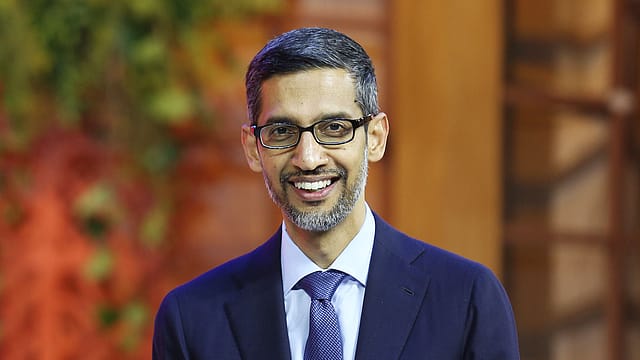The Netflix deal that still haunts Sundar Pichai: 'Google came close to buying, but walked away'
ADVERTISEMENT

Google once came close to acquiring Netflix, according to CEO Sundar Pichai — a deal that could have radically reshaped the global streaming landscape.
Speaking on the All-In Podcast, Pichai revealed that the tech giant “debated [Netflix] at some point, super intensely inside,” adding, “We came close.” Though the deal ultimately fell through, he suggested it remains one of the more significant turning points during his tenure at Google and parent company Alphabet.
While he stopped short of calling it a regret, Pichai acknowledged that it’s a decision that still crosses his mind.
“I wouldn't call it [a] regret but you always look back and like you know in a world of butterfly effects there were alternate paths but maybe they are in a different part of the multiverse,” he said.
Netflix now boasts more than 300 million subscribers and has become a global entertainment leader. Despite successes like YouTube and Google TV, the company hasn’t built a content juggernaut to rival Netflix, Disney+, or Amazon Prime Video.
Google’s acquisition history is dotted with big wins — YouTube, Android, Nest, Waze, and Fitbit among them — but Netflix is now emerging as the one that got away.
February 2026
Despite a challenging global business environment and geopolitical turmoil, MNCs are a major part of the story of Corporate India. As the country moves closer to its Viksit Bharat goal, these multinationals are playing an increasingly pivotal role in shaping that future. Fortune India’s second edition of the MNC 500 list offers a comprehensive look at the performance of the 500 largest multinationals in India. The issue also decodes Budget 2026, highlighting the government’s long-term vision to sustain the economic momentum.
While Netflix has built an empire on original content over the last two decades, Google took a different path. Netflix invested early in global productions, data-driven programming, and marquee originals like Stranger Things and The Crown, transforming itself from a DVD rental service into a cultural force. By contrast, Google leaned into user-generated content through YouTube, now the world’s largest video platform by users and watch time. While YouTube Premium and YouTube TV offer subscription models, Google has never made a decisive push into high-budget scripted entertainment. The divergence reflects two different bets: Netflix on premium storytelling; Google on scale, distribution, and creator ecosystems.
In the same conversation, Pichai pushed back on the idea that Alphabet is a traditional holding company. “We are not just looking to invest capital in other attractive businesses—that's not who we are,” he said. Instead, Alphabet’s focus remains on building new businesses from its research and technical capabilities.
Pichai also highlighted Alphabet’s moonshot lab X, and the company's research-to-product pipeline. “Not many companies win Nobel Prizes and also build products people use every day,” he said, referring to the 2024 Nobel wins by AI pioneers connected to DeepMind and Google Brain.
